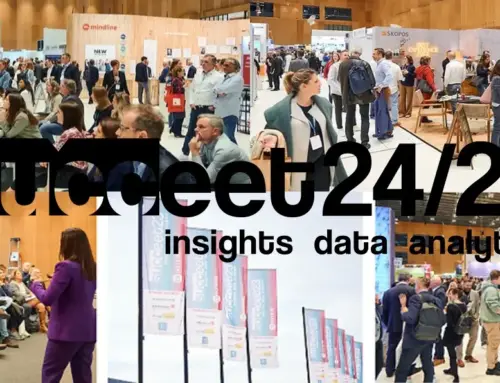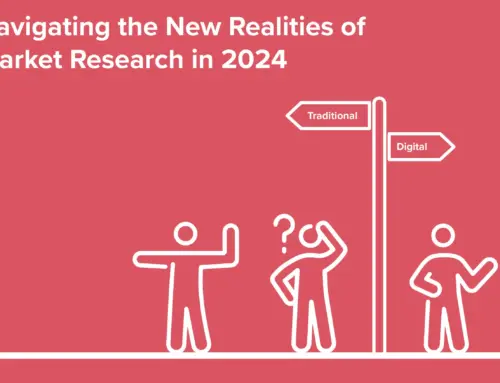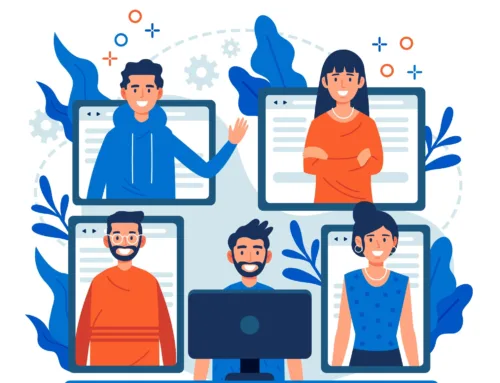Focus groups in marketing research rely on data, and they use a variety of techniques to obtain it. Different market studies require different feedback and, by extension, the application of different research methods to draw information that best fits in with the intended purpose of the study. In what specifically concerns market research, the main difference is the type of data that is collected. This data can be quantitative or qualitative. As for quantitative data, the focus is on quantity, that is, on numerical (or, in any case, measurable) user inputs that are later aggregated and analyzed by qualified data analysts for common characteristics. Closed-ended surveys, interviews, and questionnaires work best for that.
Qualitative data, for its part, is essentially descriptive. It is obtained by the moderator (or facilitator) during a guided but for the most part free-flowing discussion that allows participants to freely express their views and respond to different concepts and stimuli that are shown to them in the course of the panel discussion. Comprising mainly non-measurable inputs such as verbal descriptions, spontaneous reactions, and personal accounts, the mining of such data tends to be more challenging for researchers, though in many cases also more rewarding for the sponsor of the study, as it allows for drawing more impactful conclusions and for presenting more robust findings against the backdrop of dynamic, real-life variables. It also tends to constitute a more enriching experience for members of such groups, as they get to have their voice heard in a welcoming environment and potentially also confront their views with those of their fellow participants; that alone favors brainstorming and creates a receptive space in which new ideas are more likely to emerge.
Qualitative data in market research is best collected through in-depth interviews and focus groups. A focus group is when a group of people, usually from 6 to 10, are gathered together in one place for a round-table discussion, the purpose of which is to explore a topic. That topic is usually related to a product or service that is being either launched or intended to be enhanced for improved user experience. Normally, the participants get compensated for their time and insights, making it easier for researchers to first unlock and then tap into the qualitative data they intend to mine before passing it on to the client for review. Clients then analyze the report at their own discretion and use its findings as a springboard for introducing changes to the product or service.
Currently, we distinguish two ways in which market research agencies run focus groups: online and offline. On-site focus groups have been traditionally the only gateway for companies to commission market research projects to research agencies. But this has changed, especially over the last few years, and the online method is now considered to be just as valid and certainly easier to manage in terms of logistics. Poland, too, is no stranger to this new online trend, and the country has seen the paid online focus group format become a worthy contender for traditional research studies. The good thing about this emerging standard is that it looks like it’s here to stay, meaning that from here on out, virtually anyone can take part in paid online focus groups. And maybe it’s for the best. Online focus groups come with the added benefit of letting market researchers delve into consumers’ thoughts and feelings without significantly invading their comfort zone or risking their being in a rush to go somewhere due to a tight schedule. Because if there is one thing that puts a damper on a successful market study, it is having to deal with busy or distracted respondents.
The basic idea is for a focus group to always try and mimic a natural exchange as it would occur on a street or in a home, creating a setting in which everyone feels relaxed and appreciated, as that’s the cornerstone of quality feedback that best reflects users’ true feelings. A paid online focus group obviously shares many of the similarities with its offline counterpart, with perhaps the main difference being that the participants meet via video and any text or image cues are displayed directly on a shared screen rather than on a board or in paper format, which incidentally is also great news for the planet. But while the Internet has paved the way for busy or geographically dispersed users to be brought together and take part in paid online focus groups, what it means for brands and market research agencies is that extra precautionary steps must now be taken to ensure quality feedback and safeguard against data leaks. This is because any data obtained in the course of a paid focus group is strictly confidential (at least in the European Union), and so is the identity of its members. So, while participation in focus groups online remains relatively straightforward as compared to how it works offline, there are still certain pain points to be mindful of, such as those related to user privacy and engagement.
As with most things in life, experience and success go hand in hand in market research, too. And so the best online focus groups in Poland are those run by experienced research agencies whose years-long market presence ensures commitment to quality and skilful management of client expectations and user needs in terms of how they are received and approached during a market study such as a paid focus group. In essence, the versatility and dynamics of a market research method study run in the form of focus groups (online or offline) have meant that this format is now universally embraced as one of the safest and most valuable research techniques that let companies test out different concepts and ideas for their products to see what works and what doesn’t base on the information fed back to them by consumers. It is in many ways the way for companies to play it safe and explore different options—something that shouldn’t be taken lightly in a rapidly changing, tech-driven world such as ours where consumer moods and preferences can easily shift overnight.





